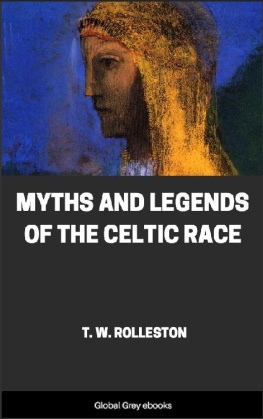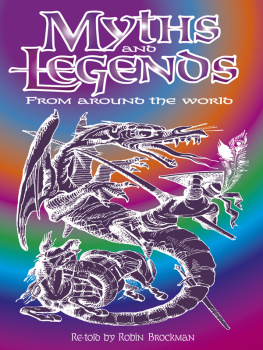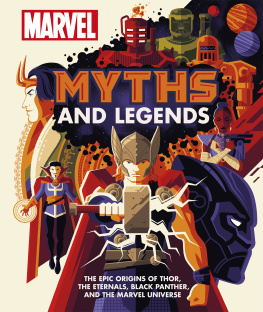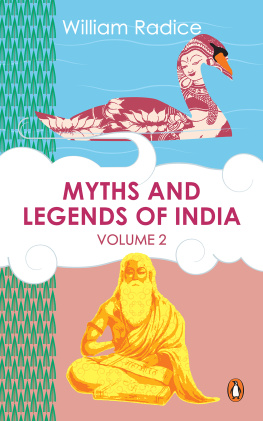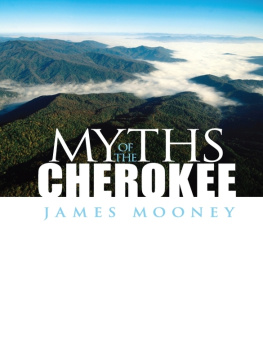EDITOR'S PREFACE
For obvious reasons it has not been possible to have the collaboration of the author of this Slavic Mythology in seeing his work through the press. This duty has, therefore, devolved upon me, though the task has been lightened by constant reference to his Bjeslov slovansk (Prague, 1907), on which his present study is largely based. Since the author supplied no Notes, and as they seemed to me desirable, I have added them. All responsibility for them is mine, not his; but I trust that they will not be displeasing to him.
Professor Mchal wrote, at my request, a chapter on the mythology of the Prussians, Letts, and Lithuanians. As this has not been received, I have endeavoured to supply it; but since I hope to prepare a study of the religion of these peoples to be published on another occasion, I have restricted myself rigidly to their mythology, discussing neither their religion, their ethnology, nor their history. That Professor Machal did not so limit his scope is to me a source of pleasure; for in those systems of religion where practically nothing is as yet accessible in English it seems preferable to treat the theme without meticulous adherence to a theoretical norm.
The excellent translation of Professor Machal's study has been made by his colleague, Professor F. Krupika, to whom he desires to express his gratitude for his assistance in this regard.
LOUIS H. GRAY.
November 6, 1916.
PRONUNCIATION
The vowels are pronounced generally as in Italian. In the Lithuanian diphthong ai the first element predominates almost to the suppression of the second. Russian has the sound of the English word yea or of ye in yes; Lithuanian (often written ie) is pronounced like yea, but with a slight a-sound added (ya), and is equivalent to ua (very like English zvhoaa); Lettish ee is simply (English a in fate); Polish ie is like English ye in yes; Russian iy is practically the i in English pique. The Slavic and have only an etymological value, and are not pronounced; in the present study they are omitted when final, so that Perun, e.g., is here written Perun.
J is like y (for convenience the Russian letters often transcribed ja, etc., are here given as ya, etc.); of the liquids and nasals, r and l between consonants have their vowel-value, as in English betterment, 'apple-tree (betterment, appltree); is pronounced in Polish like the z in English azure, and in Bohemian like r followed by the same sound of z; Polish t is a guttural (more accurately, velar) l; has the palatal value of ni in English onion. The sibilant is like sh in English shoe (in Lithuanian this sound is often written sz), and (Lithuanian ) is like z in azure.
Of the consonants (often written cz in Lithuanian) has the value of ch in church;ch that of the German or Scottish ch in ach, loch;c that of the German z (ts).
The consonant-groups in the present study are pronounced as follows: cz like ch in church;dz and dj like j in judge;rz like z in azure;sj like sh in shoe; and szcz like shch in fresh-chosen.
INTRODUCTION
Since those records of ancient Slavic life which have survived are very superficial, it is not surprising that only scanty and fragmentary knowledge of Slavonic religions has come down to us. The native chroniclers, imbued with Christian civilization, dealt shallowly and, it would seem, reluctantly with the life of their pagan ancestors; and while writers of other nationalities have left much more thorough accounts of the religions of the Slavic peoples, yet, being ignorant of the Slavic dialects and insufficiently familiar with the lives and customs of the Slavs, their documents are either very confused or betray a one-sided Classical or Christian point of view. It must further be borne in mind that the extant data treat of the period immediately preceding the introduction of Christianity, when the Slavic nations, inhabiting a wide-spread region and already possessed of some degree of civilization, had made considerable progress from their primeval culture. Hence no inferences may be drawn from the mythology of one Slavic nation as to the religion of the Slavs as a whole.
The most ample evidence, relatively speaking, is found regarding the religion of the Elbe Slavs, who adopted Christianity as late as the twelfth century. Thietmar, Bishop of Merseburg, gives the earliest accounts of their religion (976-1018),
The most important evidence for Russian religion is contained in the Chronicle of Nestor (1100); and to these two main sources for a knowledge of the pagan period in Russia may be added some old religious writings directed against the heathenism which still lingered among the folk.
Mention of the religions of the eastern and southern Slavs is made in the works of the Greek historian Procopius of Caesarea (sixth century) (tenth and twelfth centuries respectively), while allusions to ancient Slavic pagan rites and idolatry are found in the mediaeval encyclopaedias which were translated from Greek and Byzantine originals.
The main source for the religion of the Czechs is the Chronicle of Cosmas (ob. 1125),
These poor and scanty accounts of the mythology of the ancient Slavs are supplemented by old traditions which still live among the people, these legends being very rich and containing ample survivals of the past, since even after their conversion to Christianity the common folk clung to their pagan beliefs. Thus ancient national tales, preserved to this very day, contain distinct traces of the early faith, and these traditions, verified by old evidence, are of such prime importance that they will form the basis of our description of Slavic mythology.
References
SLAVIC
Introduction
Chronicon, i. 3, 7, 14, iii. 19, v. 23, vi. 1718, 23-25, 38, viii. 59, 6465, 69.
ii. 1819, iii. 50, 52, 60; Descriptio insularum Aquilonis, 18.
i. 2, 6, 13, 21-23, 38, 52, 69, 83, 93, 163, ii. 12.
Gesta Danorum, pp. 444-45, 505, 564 ff., S7475i S77, 578
lxxxvi, cxxicxxii.
Herbord, ii. 3133, 35, iii. 6-7, 2223, 26; Ebbo, ii. 13, iii. 1, 8.
x, xxxviiixxxix, lxv (tr. Leger, pp. 910, 6168, 14853).
Ed. and tr. A. Boltz, Berlin, 1854, tr. H. von Paucker, Berlin, 1884, ed. O. Partytzkiy, Lww, 1884.
De bello Gothico, iii. 14.
10. Les Prairies d'or, ed. and tr. C. Barbier de Meynard and Pavet de Courteille, Paris, 186177, especially ii. 9, iii. 6364, iv. 5860.
L'Abrg des merveilles, tr. Carta de Vaux, Paris, 1898, pp. 11516.
i. 4, ii. 8, iii. i, 8, 136.




